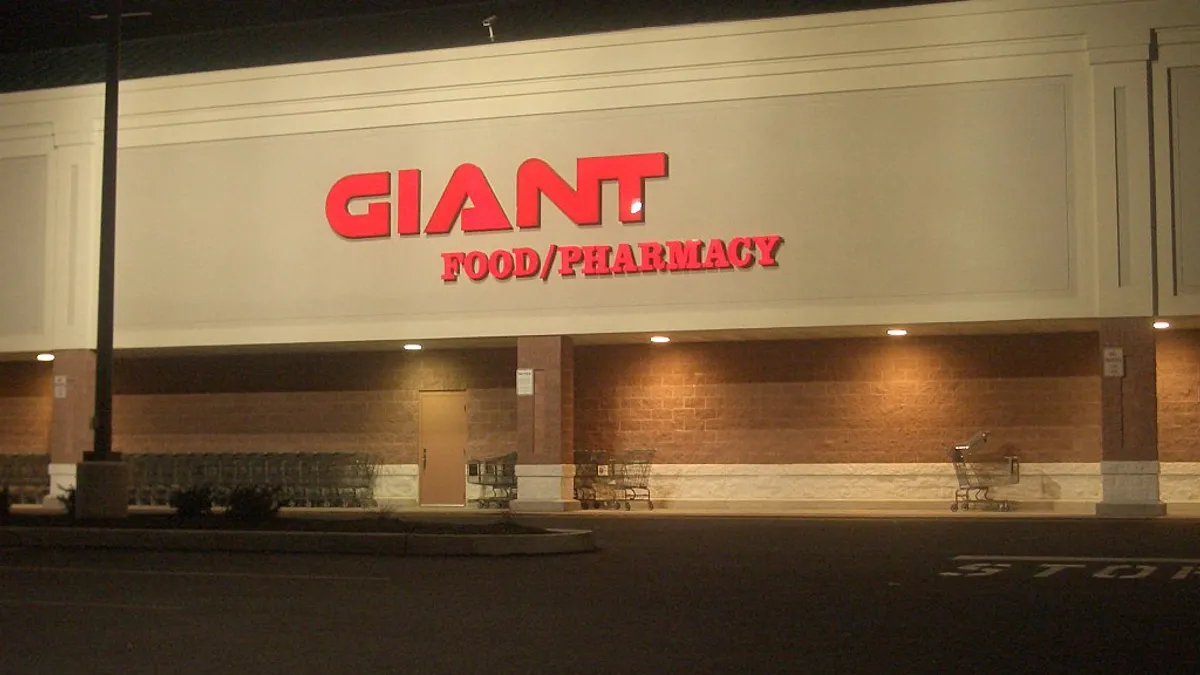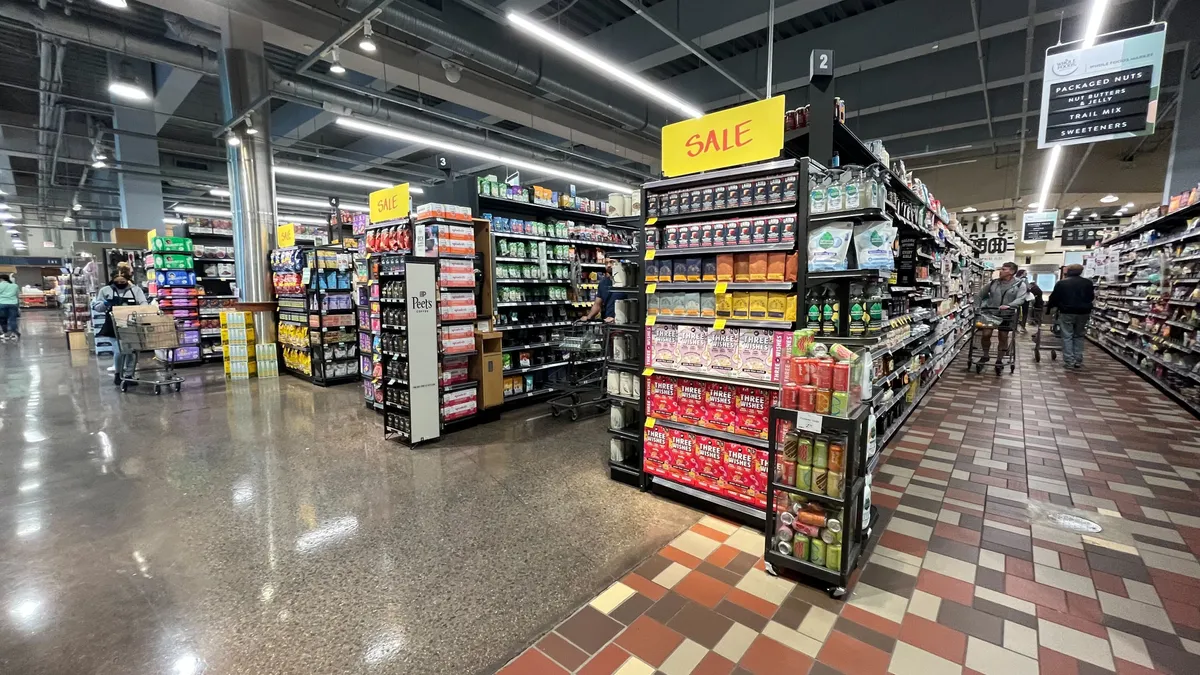Dive Brief:
- Giant Food Stores says its Cleona, Pennsylvania grocery store is the first in the chain to reach zero waste status, according to a company news release. The designation means at least 90% of the store’s total waste is diverted from a landfill or incineration.
- Cleona associates use recycling procedures throughout the store, as well as monitor items sent to the trash compactor so nothing gets thrown away that could be recycled. That includes not tossing cardboard into the trash, filling designated bins with food waste and scraps for organic recycling and collecting plastic bags, plastic film and empty medication bottles to be sent to Giant's recycling center.
- Across Giant's 170 East Coast stores, nearly 80% of all waste is diverted through recycling and composting, according to the company.
Dive Insight:
Implementing a waste diversion program on par with Giant's certainly isn't easy. Doing so requires a coordinated effort between corporate and local teams, as well as across the store's various departments.
It also helps to engage customers and implement some creative ideas.
“For example, we clean the empty frosting containers from the bakery as well as corn crates from produce and put them out for our customers to take them home and reuse them," said Andrea Doygun, manager of the Giant store in Cleona, in a news release. "Every little thing counts.”
In addition to improved efficiency, Giant boosts its eco-friendly and community credentials through the effort. The company donated more than one million meals to local organizations last year, and also helped save more than 930,000 trees through recycling. Since 2011, GIANT and its parent company, Ahold Delhaize USA, say they’ve removed a billion plastic bags from the waste stream through more efficient bagging, increased usage of reusable tote bags by customers and turned plastic bags into 1,500 donated park benches through its Bags to Benches program.
Giant isn’t the only grocery company cutting down on trips to the landfill. Kroger last year announced a "moonshot" effort to eliminate food waste across the company by 2025, as part of its "Zero Waste" 2020 goals in the company’s annual sustainability report. Efforts would include actions like 90% diversion from landfill in its facilities, increased use of reusable plastic containers, perishable foods donations and composting. Last month, the company announced it will do away with single-use plastic bags by 2025.
Walmart, too, is well on its way to zero waste. The retail giant diverted 81% of of unsold products, packaging and other waste from landfills in the U.S. in 2017 and 78% globally, and is working toward the goal of eliminating waste to landfills by 2025 in Canada, Japan, the U.K. and U.S.
Despite these efforts, watchdog groups believe retailers aren't doing enough to combat food waste. An analysis released in April by the Center for Biological Diversity and the "Ugly" Fruit and Veg Campaign gave none of the 10 biggest U.S. food retailers an A on reducing overall food waste, tracking and publicly reporting waste, and diverting what they can from the waste stream by selling imperfect produce.









